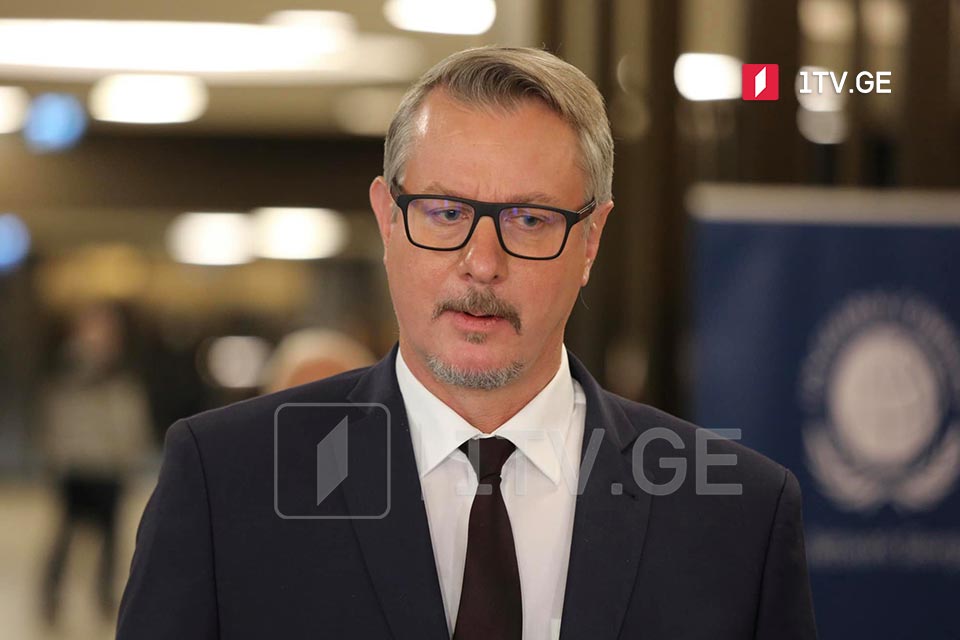EU to have concerns about different aspects of ex-president Saakashvili’s case development, Ambassador Hartzell says
“The European Union is following the developments around Mikheil Saakashvili very closely. We had concerns about different aspects of this development,” said EU Ambassador to Georgia Carl Hartzell. Hartzell added the EU is paying attention to the work of some institutions in Georgia.
“I would like to start with the medical council, which was set up on the initiative of Prime Minister, which we welcome very much. I think it has played a very important role because, as many have been saying that diplomats are not doctors, neither are politicians to have medical advice to rely on that, is important. And I hope that they will also be able to continue. I will also say about the special role that the Public Defender is playing here in line with the Constitution in terms of supervising this case and giving advice and assessment which we also value much.
And finally, I would like to mention the State Inspector’s Office, which has provided some good advice and recommendations with regard to prisoners’ rights, which we appreciate. Against this background, I made some comments already last night. Starting with the health situation, we believe it is utterly important that recommendations that have been given by the Medical Council are going to be fulfilled and implemented in full. That is what we expect. Secondly, with regard to the prisoners’ rights and the rights of Mr Saakashvili as a prisoner, we have been following the events. We have been following the situation, including what we heard from the Public Defender, from Mr Saakashvili himself, about his transfer from prison to the Gldani prison hospital. We have also seen the footage, which raises questions with us, and it is very important in this case to make sure that full respect is paid to both the national legislation here in Georgia and also the European Convention on Human Rights,” the Ambassador said.
According to Carl Hartzell, the EU took note of the fact that ex-president Mikheil Saakashvili was not allowed to attend the court trial on November 10.
“We remind everyone of what the European Convention on Human Rights says about the right of defendants in criminal cases to be represented in person or by a representative of his or her choosing. Again important principles that should be upheld, and this is going to be very important in general, that we are seeing in the legal process that is transparent, impartial and just.
So, against this background, the news that came last night on the decision of the European Court of Human Rights to take a role in this, I welcome very much. I think it is very important, and hopefully, it is the promising first step towards finding a more consensual way forward. As we know, this interim measure that was produced is also making some demands first with regard to urging Mr Saakashvili to end his hunger strike. In parallel, a decision that is binding on the authorities to make sure that his safety is provided, that his health situation is provided and that he receives the right type of treatment, including for him to successfully do the recuperation.
And, all of this should be reported back to the court with the deadline set for November 24. I think it’s a balanced approach that will hopefully lead to a situation where things can start moving forward in addressing some of the key issues. Not everything that I just mentioned, but some of the key issues and arguably the most acute issues regarding the health and safety situation of Mr Saakashvili. I would like to call on all to respect this decision and as quickly as possible to see it implemented,” the Ambassador said.
On November 10, the Strasbourg-based European Court of Human Rights (ECHR) urged the ex-president to call off his hunger strike. Law enforcers arrested Mikheil Saakashvili in the Georgian capital of Tbilisi on October 1. He has been on a hunger strike since the very first day of his arrest.

